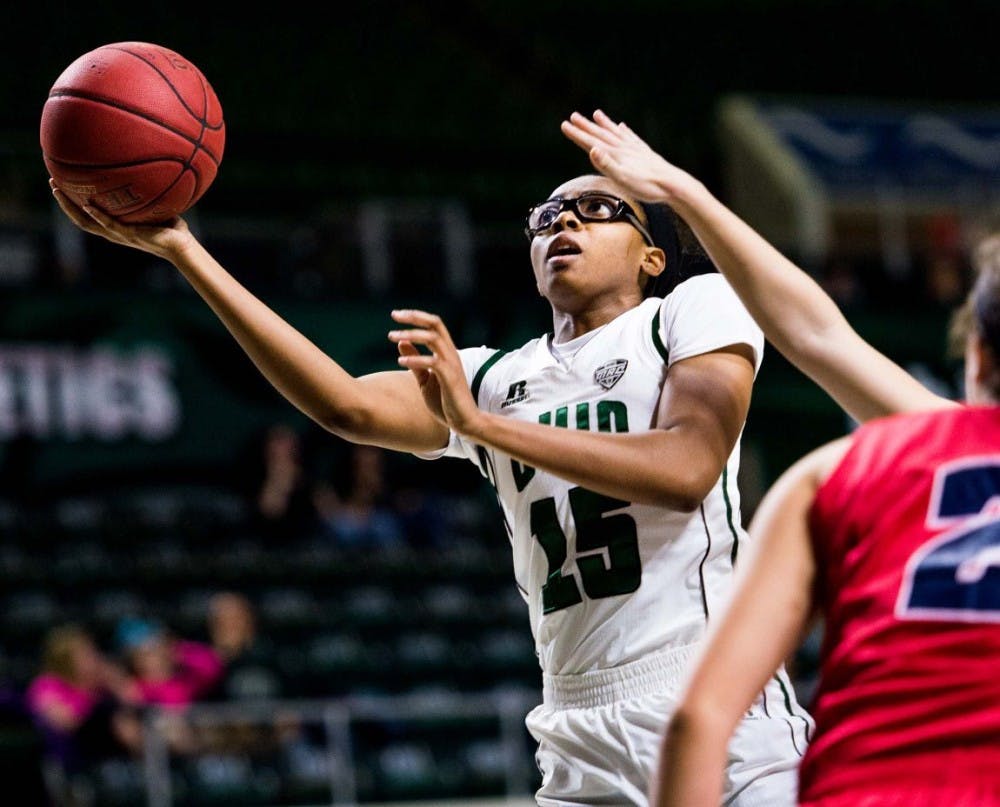Ohio’s success is generated from its collectiveness this season.
Discussions seem endless comparing this year’s and last year’s teams.
A season ago the Bobcats won just nine games, but that has already been replaced by a campaign in which they’ve won 11 of a possible 14 games.
At the midpoint of the regular season, Ohio has found a good balance working together as a team. With this new style, individuals have focused more on winning contests — even if it’s done sloppily — rather than recording certain personal statistics.
An easier nonconference schedule has aided the Bobcats this season. But another theory attributes the early successes to a more experienced roster understanding its second-year coach’s philosophies and fundamentals. Perhaps the best explanation would be a mixture of each.
“Because we rely on each other so much, if we have one working part that’s not working real well, we can look back quickly,” coach Bob Boldon said. “Sometimes it’s just a matter of us working as a team.”
During Saturday’s 65-58 win over Toledo, Ohio led 35-25 at halftime, thanks to a collective effort on both sides of the floor. Defensively, they shut down Toledo’s offensive production, causing the Rockets to make less than 30 percent of their shots and miss each of their 10 3-pointers taken in the opening half.
Offensively, Ohio distributed the ball until it could find the player with the best shooting opportunity. The result was 10 assists in the half, in comparison to Toledo’s lone dish. The Bobcats also made more than 45 percent of their shots attempted.
During the first half Saturday, Ohio held a 16-point lead, but a seven-minute offensive lull to begin the second half allowed the Rockets to climb back into the game and eventually take the lead before the Bobcats recovered to win.
“Without seeing the tape … my gut feeling (is) that we probably played more team basketball over the last seven minutes than during the stretch when they got back into it,” Boldon said.
That sense of togetherness is exactly what was missing a year ago, said junior guard Kiyanna Black.
“(Maturity) is the big difference between this year and last year,” Black said. “I think we’re all just gelling together, the team and the coaches. We’ve been in this situation before. Now it’s just time to get it done.”
In addition to an improved chemistry, having enough able bodies to rotate players is another difference from Boldon’s first season.
Both junior forward Lexie Baldwin and senior guard Mariah Byard fouled out of Saturday’s game, with plenty of time remaining in the game (Baldwin left the floor with 11:58 remaining.)
Last year’s Ohio team would have fallen apart late in the game, as it often did, when players became tired and didn’t have replacements.
This year, however, the team simply calls another player off the bench and mildly adjusts its game plan.
“It’s terrific,” Boldon said. “It’s a world of difference when you can put in kids with confidence instead of hoping, and that’s what we do … It’s a big help.”
@charliehatch_
gh181212@ohio.edu






